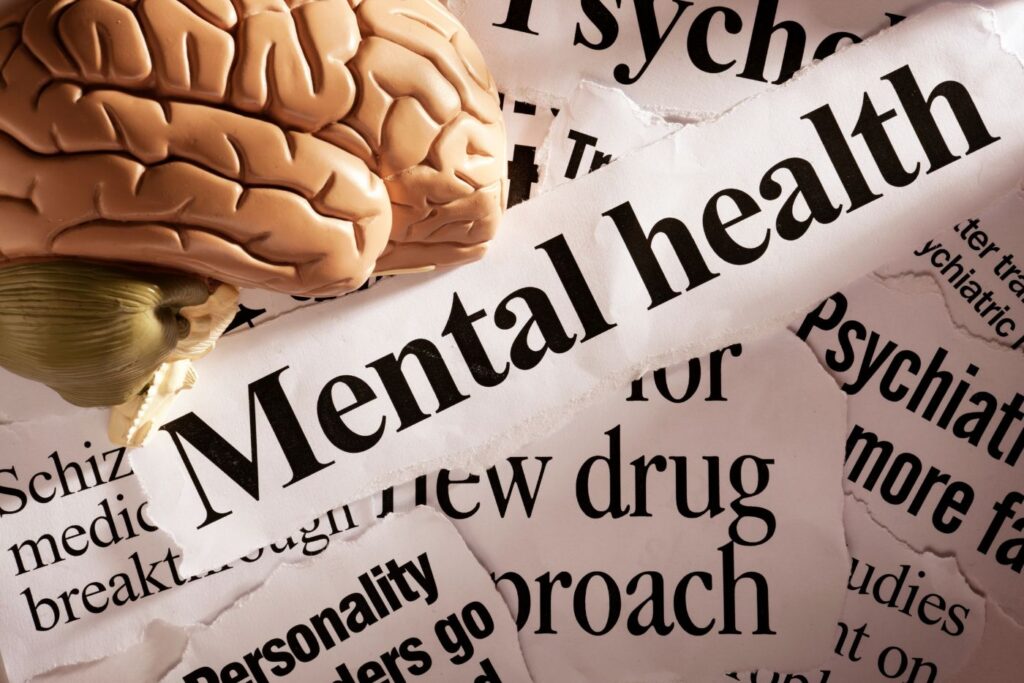Cognitive behavioural therapy (CBT) has transformed the way people approach mental health. Instead of only exploring your past, CBT gives you practical tools you can use right now to change unhelpful patterns of thinking and behaviour. It’s one of the most effective therapies for conditions like anxiety, depression, trauma, and insomnia, and its benefits often last long after the sessions end.
At Yatra Centre in Krabi, Thailand, we use CBT alongside holistic practices to help you not only manage symptoms but also create lasting change in your life.
What is Cognitive Behavioural Therapy?
Cognitive behavioural therapy (CBT) is a structured, goal-focused form of psychotherapy that helps you identify and change unhelpful patterns of thinking and behaviour. Unlike traditional talk therapies that spend more time exploring your past, CBT focuses on the present. It aims to break the cycle between your thoughts, emotions, and behaviours so that you can manage your mental health more effectively.
The central idea is that negative thoughts can drive negative emotions and actions. For example, if you believe you are not good enough, you may feel anxious, avoid social interaction, and reinforce the belief through isolation. CBT helps you identify these distortions, challenge them, and replace them with healthier ways of thinking and acting.
The American Psychological Association notes that CBT is one of the most evidence-based and widely recommended therapies for many psychological disorders. At Yatra Centre in Krabi, our clinicians use CBT as a foundation for helping clients work through anxiety, depression, trauma, and other conditions, often combining it with holistic therapies for deeper results.
A Brief History of Cognitive Behavioural Therapy
CBT originated in the 1960s through the work of psychiatrist Aaron Beck, who observed that automatic negative thoughts were central to many of his patients’ struggles. Around the same time, psychologist Albert Ellis created rational emotive behaviour therapy (REBT), which targeted irrational beliefs. Over time, the two approaches converged, blending cognitive and behavioural techniques into what we now know as CBT.
Today, CBT is supported by thousands of studies and is recommended in official treatment guidelines worldwide. The Royal College of Psychiatrists describes CBT as a structured talking therapy that focuses on the link between your thoughts, feelings, and behaviours, helping you find new ways of thinking and reacting to challenges.
How Does Cognitive Behavioural Therapy Work?
CBT is typically delivered in weekly sessions lasting 45–60 minutes over a period of 10–20 weeks. Therapy is collaborative: you and your therapist work as a team to set goals, track progress, and practice skills both in and outside of sessions.

Instead of focusing on why problems developed, CBT places emphasis on how they are maintained in the present. This makes it especially effective for providing practical, real-world coping strategies. Sessions usually involve reviewing recent challenges, introducing new skills, and setting homework tasks to apply those skills between meetings.
Core Techniques Used in CBT
- Cognitive restructuring – learning how to identify, challenge, and reframe negative or irrational thoughts
- Behavioural experiments – testing out beliefs in real-life situations to see whether they hold true
- Exposure therapy – gradually and safely facing feared situations or memories until the anxiety reduces
- Behavioural activation – engaging in meaningful activities to counter low mood or withdrawal
- Relaxation and grounding techniques – reducing stress through breathing, progressive muscle relaxation, or mindfulness
- Skills training – improving problem-solving, communication, or social confidence
What Conditions Can CBT Treat?
CBT is highly versatile and has been shown to treat a wide range of mental health conditions. It is considered a first-line treatment in many clinical guidelines and has been adapted to fit different needs and age groups. Below are some of the most common conditions where CBT has been proven effective.
Depression
People living with depression often find themselves caught in cycles of negative thoughts, low mood, and withdrawal. CBT helps to break this cycle by identifying distorted thinking and encouraging re-engagement with meaningful activities. The approach strengthens self-belief and builds resilience, giving you practical tools to manage future challenges. Many studies show CBT is as effective as medication, with the added benefit of lower relapse rates once therapy ends.
Anxiety Disorders
Anxiety disorders frequently involve overwhelming worry, physical tension, and avoidance of feared situations. CBT addresses these patterns by helping you challenge anxious thoughts and gradually face triggers. Over time, this reduces fear and builds confidence in handling everyday stress. Long-term outcomes are strong, with many people reporting lasting relief even after therapy concludes.
Post-Traumatic Stress Disorder (PTSD)
Recovering from trauma often involves persistent, distressing memories and hyperarousal that interfere with daily life. Trauma-focused CBT—including approaches like prolonged exposure (PE) and cognitive processing therapy (CPT)—has been shown in one of the most widely researched meta-analyses to deliver large, clinically meaningful reductions in PTSD symptoms, even in real-world clinical settings. At Yatra Centre, we pair these evidence-based methods with mindfulness and somatic practices to support not just psychological healing but full-body recovery.
Obsessive-Compulsive Disorder (OCD)
OCD is fueled by repetitive intrusive thoughts and compulsive behaviours aimed at reducing anxiety. CBT, particularly exposure and response prevention (ERP), breaks this cycle by guiding you to face triggers without carrying out rituals. Cognitive restructuring helps you challenge the distorted beliefs driving the behaviour—like exaggerated responsibility or harm fears. Over time, this reduces both the frequency of obsessions and the urge to respond.
Eating Disorders
Disordered eating often stems from rigid, self-critical thoughts about food, weight, and body image. CBT steps in by replacing these with kinder, more balanced perspectives. Alongside belief work, the therapy encourages healthier routines around eating and self-care. At Yatra Centre, CBT is complemented by nutritional guidance and body-based therapies, helping clients rebuild a positive and sustainable relationship with themselves.
Insomnia
Chronic insomnia is typically kept alive by poor sleep habits and bedtime anxiety. CBT for insomnia (CBT-I) targets both mindset and routine by resetting sleep schedules, limiting the bedroom to sleep-only activities, and teaching relaxation techniques. These tools help retrain both mind and body for more restful slumber without relying on medication.
Substance Use Disorders
Addiction often arises from repeated coping strategies that become hard to break. CBT helps you identify the thoughts and situations that trigger cravings, while providing healthier ways to respond. Skills training and relapse prevention are essential components, equipping you with practical tools to stay on track. When combined with holistic therapies, CBT supports not just abstinence but also a more balanced, fulfilling lifestyle.
At Yatra Centre, we frequently see clients arrive with overlapping issues such as trauma, anxiety, and addictive behaviours. CBT allows us to address these challenges in a structured way while complementing them with therapies that work on the body and nervous system.
In addition, CBT has been adapted for chronic pain, grief, relationship issues, and anger management. According to PubMed research, CBT has demonstrated effectiveness across more than 50 distinct conditions.
What are the Benefits of CBT?

CBT is one of the most preferred therapies worldwide because of its practical nature and proven results. Benefits include:
- Strong evidence base with decades of research
- Focused on present-day symptom relief
- Practical coping skills you can apply outside therapy
- Empowerment through active participation in treatment
- Lower relapse rates compared to medication alone
- Brief, cost-effective therapy, usually 10–20 sessions
- Effective across age groups and diverse conditions
At Yatra Centre in Krabi, Thailand, CBT is not just delivered as a standalone therapy. Our therapists guide you to put strategies into practice while also addressing deeper emotional wounds through integrative methods. This balance helps you not only manage symptoms but also move toward long-term healing. Call us today at +66 96 916 3287 to arrange your free consultation.
Is CBT Effective?
The effectiveness of CBT has been confirmed by numerous clinical trials and meta-analyses.
- For depression, studies show CBT is as effective as antidepressants in the short term but has lower relapse rates once treatment ends
- For anxiety disorders, a 2012 meta-analysis of 270 studies found CBT to be highly effective, with outcomes equal to or better than medication
- For insomnia, CBT-I is recommended by the American College of Physicians as a first-line treatment
- For PTSD, CBT is among the most evidence-supported interventions, especially when trauma-focused methods are used
While response rates vary depending on the individual and the complexity of their condition, CBT consistently ranks as one of the most effective psychotherapies available.
Conclusion: Key Takeaways About CBT
- CBT focuses on breaking cycles of unhelpful thinking and behaviour
- It is effective for conditions such as depression, anxiety, PTSD, insomnia, and more
- Sessions are structured, time-limited, and collaborative
- Clients actively practise skills outside of therapy through homework
- Research shows CBT is as effective as medication for many disorders and often prevents relapse
Cognitive behavioural therapy equips you with practical tools that continue to benefit you long after therapy ends. At Yatra Centre, we integrate CBT into a broader range of healing therapies so you can address not only your thoughts and behaviours but also the deeper emotional and physical impacts of trauma.
If you’re ready to take control of your mental health, explore our CBT treatment options today or call us at +66 96 916 3287 to speak with a specialist.
Frequently Asked Questions
Q: What is cognitive behavioural therapy (CBT)?
A: CBT is a form of therapy that addresses the connection between your thoughts, feelings, and behaviours. It helps you identify and change negative patterns that affect your mental well-being.
Q: How does CBT work?
A: CBT works by teaching you to notice negative thoughts, challenge them, and replace them with healthier beliefs and behaviours. This process improves emotional balance and reduces symptoms.
Q: What are some common CBT techniques?
A: Techniques include cognitive restructuring, behavioural activation, exposure therapy, and mindfulness practices.
Q: How effective is CBT?
A: Research shows CBT is highly effective for depression, anxiety, PTSD, insomnia, and more. Its benefits often last longer than medication.
Q: How long does CBT usually last?
A: CBT is generally short-term, lasting 6–20 sessions depending on the issue.
Q: Can CBT be done in groups?
A: Yes, CBT can be effective in both individual and group settings. Group therapy offers additional peer support and shared learning.


